Asking customers how they heard about your business may seem like a logical step for refining your sales, marketing, and overall positioning. Easier said than done, though. Where do you ask and how? Which customers do you target and how do you analyze your results?
Today, we’ll show you everything you need to know about this incredibly useful type of survey. We’ll answer the questions above and provide some useful examples and templates to help you get started.
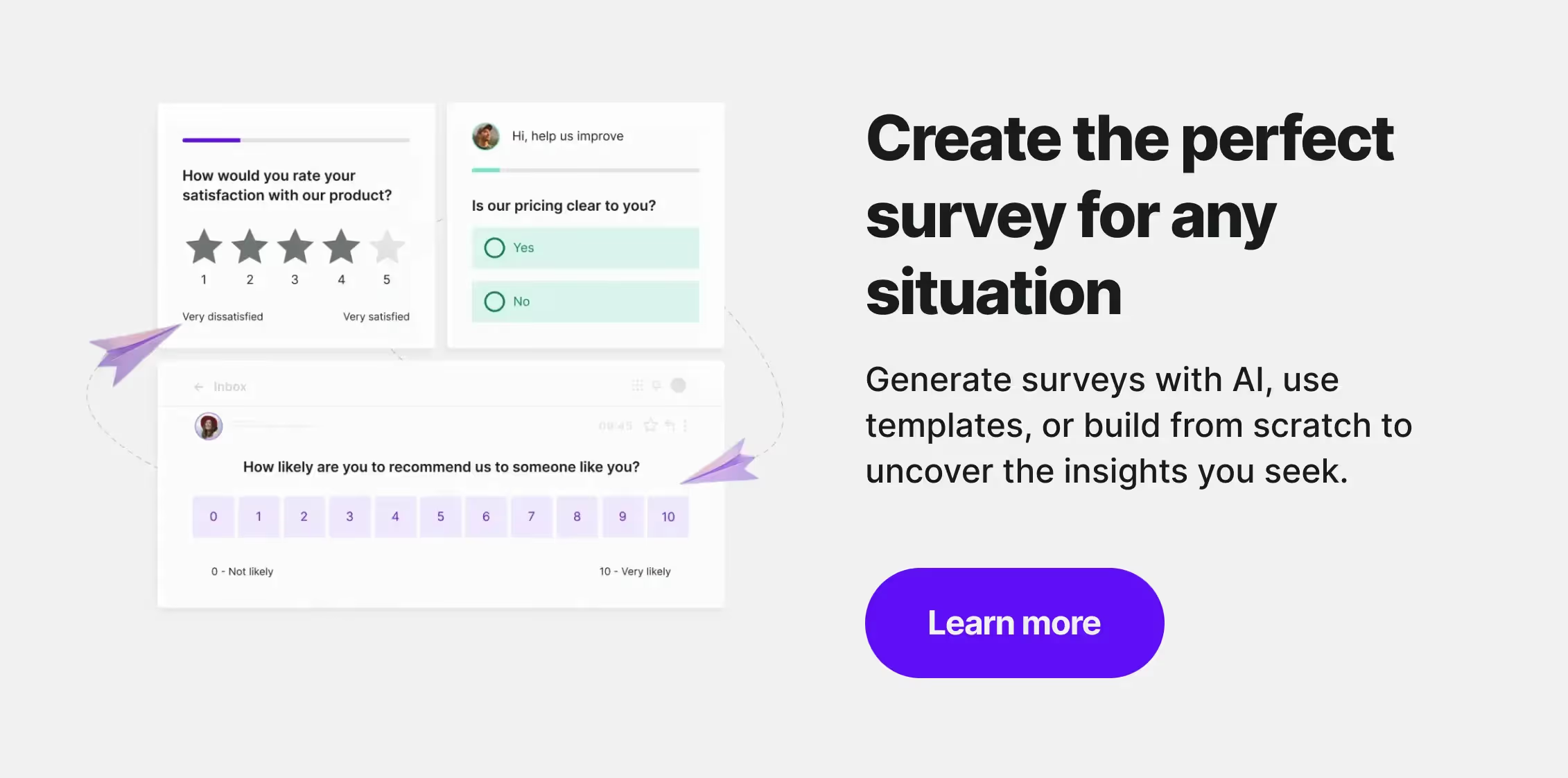
Why do you need a “How did you hear about us” survey?
The short answer is: to uncover your best traffic and customer acquisition channels. This kind of survey provides valuable information that you can use to get new consumers.
Have you ever wondered if your marketing techniques really do the trick? As a company, you work overtime to ensure you’re getting your brand out there, but when customers roll up to your doorstep, how do you know what’s working?
Is it the emails? What about social media marketing? Word of mouth? Or good search result placements?
Let’s face it, the easiest way to find out is to have your customers tell you. And that’s what the “How Did You Hear About Us” survey is about.
How to create a perfect “How did you hear about us” survey
Follow the simple steps below to find out how your customers discovered your business and what you can do to widen your reach.
Choose a survey distribution channel
How do you normally get in touch with your customers? Which channels bring you the most responses? You don’t have to reinvent the wheel—simply use the same channels that are already working for you, whether it’s emails, text messages, in-app surveys, or website pop-ups.
Survicate lets you run surveys via email, link, in-app, or on your website—so you can meet people exactly where they’re most likely to respond.
Use an optimized survey template
Survicate’s “How did you hear about us” survey template below was designed by customer feedback experts and optimized for high response rates
It uses survey logic, which means your respondent will see a relevant follow-up question based on the answer they select.
You can, of course, modify it by changing the wording of the questions, translating it into different languages, or adding/deleting questions as you see fit. You can also fully customize it to match your brand or connect it to your marketing stack.
Add a follow-up question
Users will very often opt for the most straightforward answer rather than going into detail. The main reason is something called the economy of effort. Your website visitors choose not to spend a certain amount of effort on an action that will not benefit them in any way.
If you have already included this question in a survey on your site, you may have found that people often provide extremely minimalist answers, which can be okay in some cases, but it won’t give you deeper insights.
Respectively, if you’re going to ask your customers how they found out about your business, it’s essential to have a follow-up question so they can elaborate on their answers.
There is, however, a great way of approaching this issue. With tools like Survicate, you can use multiple-choice follow-ups and open-text fields side by side—giving respondents an easy way to elaborate without making the survey feel long.
It’s safe to assume that there will always be a limited number of possible answers to your follow-up survey questions, so use the multiple-choice boxes below.
If you’re willing to get even more detailed insights, you can do so with a customer-perceived values survey. Here is a template you can use for free:
This survey helps you find out how much value your customers find in what you’re selling compared to their expectations.
Identify the context
To maximize the effectiveness of this question, you need to get a better understanding of the context in which your customers found you.
As a service or product provider, you typically solve a number of problems for your customers.
There is one more question that you can ask along with how your customers found you. Simply ask what they were looking for when they stumbled upon your site in the first place, and if they:
- found you while they were looking for a solution to a problem;
- were looking for popular companies in your niche or industry;
- found you while trying to acquire a new skill;
- or wanted to switch from a product or service they are currently using to your one.
By identifying the context of your “How did you hear about us” question, you’ll be able to better direct efforts towards creating content that fits their needs.
If they find you on a particular website or platform, that will allow you to make a decision about investing more time and resources into these platforms.
Survicate’s survey logic helps you ask the right contextual questions based on a user’s previous answer—so you don’t have to guess what they were looking for when they found you.
Tip: if you feel like using different phrasing, you don’t have to go with “How did you hear about us?”. Our survey template has an excellent alternative:
Use this survey to grab your prospects’ and customers’ attention before they switch to a competitor.
Organize your budget
Once you’ve discovered where your customers find out about your business that will allow you to calibrate your budget accordingly. When it comes to efficient marketing, you need to cut out channels that don’t work for you or simply aren’t cost-effective.
Gathering detailed information about where your customers come from will show you which channels you should invest more into and which ones you need to let go of. In effect, this will provide you with a much higher ROMI (return on marketing investment) and a much leaner marketing mix.
Integrate with third-party tools
Once you’ve set up the survey, don’t forget to integrate it with any relevant third-party tools you’re using.
Survicate comes with dozens of native integrations, including tools such as Slack, HubSpot, Intercom, and Smartlook. This means you can get real-time notifications about any new responses and launch automated processes.
Keep up with the monitoring
Once you’ve arrived at a somewhat better understanding of what your most fruitful sources of traffic and customers are, don’t stop researching and monitoring.
The main idea behind this is that there’s always space for improvement. If you feel like your campaigns have improved after making data-based changes, a more extended analysis will allow you to identify the bright spots and enhance the campaign even more.
Explain why
Asking how customers heard about you is a usual customer success question. However, some people might be inclined to disregard this question, and others may even be put off by it. Therefore, it makes sense to tell your customers why you’re asking.
Ideally, you’d have to explain that this information will allow them to have a considerable impact on your service and will enable it to improve and grow. When there is a sense of purpose behind running a survey, it will improve all of your survey metrics, starting with the completion rate.
This kind of feedback is especially useful for marketing teams looking to refine their messaging and double down on the campaigns that actually reach people.
Analyze your results
Once responses start coming in, it’s time to analyze what your customers say and create a comprehensive report for your team. If the word “analyze” doesn’t excite you all that much, you just haven’t tried the right survey software.
With Survicate, all your survey results are stored in one central dashboard and you get a bird’s eye view of your results. If you have a closed-ended survey, you can immediately see how many respondents voted for a certain answer.
If you add an open-ended question to your survey, you can analyze it at a glance with a word cloud. You’ll quickly see the most common words mentioned by your respondents, which means analysis is no longer something that takes days on end.
"How did you hear about us" sample answers
Here are some of the most popular answer options you can include in this survey type.
- Search engines (other websites, blogs, videos, pictures)
- Internet ads
- Social media
- Customer review sites
- Comparison sites
- Referral
- Customer testimonials
- Other
And here are some other, less popular answers.
- Podcast
- Webinar
- Forum
- Event
- Seminar
- Employer or coworker
- TV
- Newspaper
- Billboard
Remember to add a follow-up question to your survey to get the most specific answers that help you to use it in your analysis about which traffic has the most potential for your business to focus on first or the most.
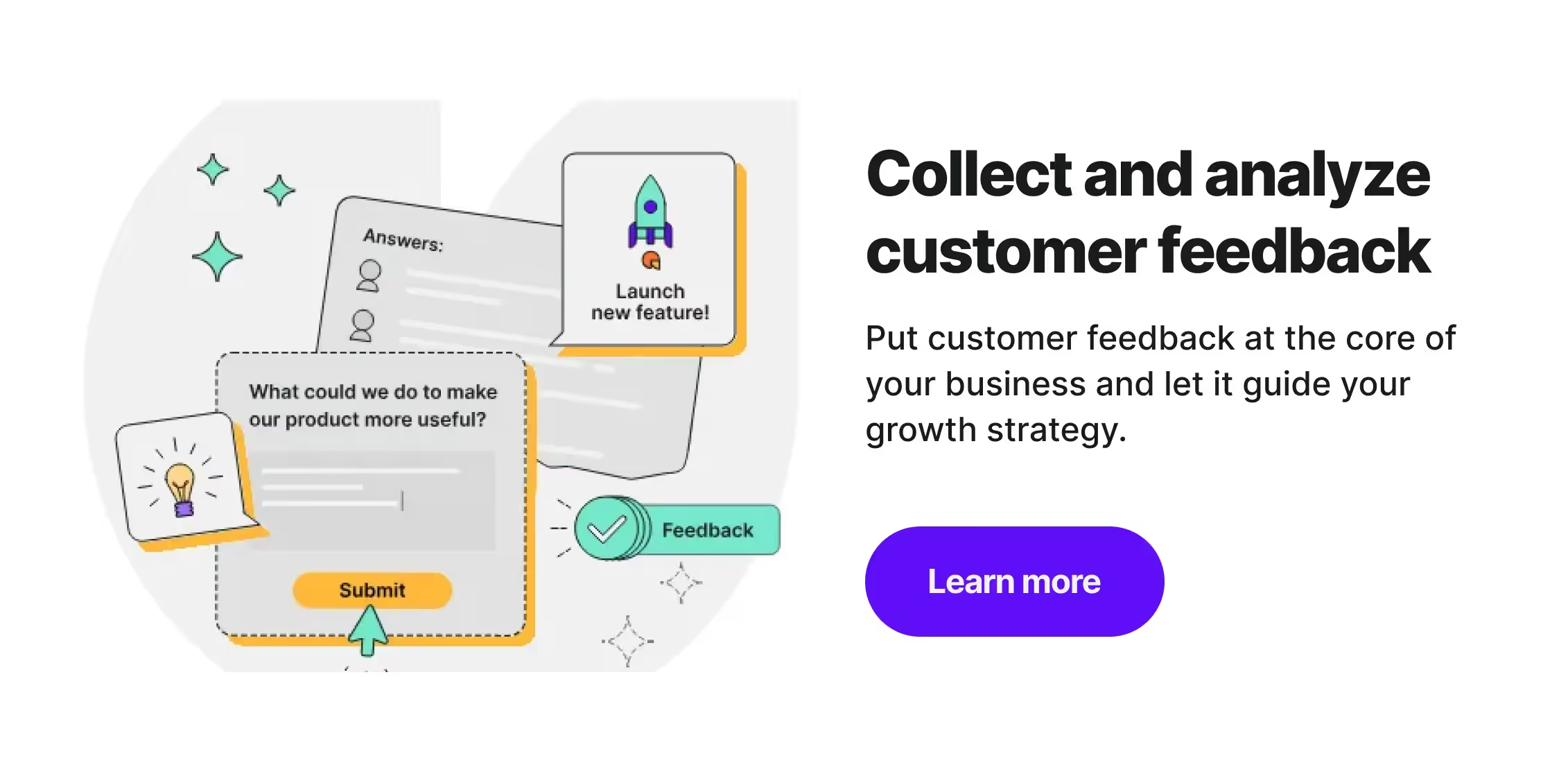
Start running customer surveys now
The “How did you hear about us” survey only works for businesses that go the extra mile and optimize the user’s experience with them. By using these simple steps outlined above, you’ll see a considerable boost in your survey completion rates and the quality of the answers you get.
And if you’re looking for a tool to make that happen, Survicate is a customer feedback platform that lets you create and send surveys across multiple channels—email, website, in-app, or mobile—without needing technical skills. You can start from a template, apply survey logic, customize branding, and connect responses to your favorite tools like HubSpot, Intercom, or Slack. Thanks to all that, you can find out how your customers heard about you in as little as five minutes.
It’s especially useful for marketing teams who want to understand how people discover their brand and improve messaging or targeting based on real input from real customers, but you don’t need to be an expert marketer or a data analyst to understand the results. All responses feed into a visual dashboard, complete with filters, charts, and word clouds—so you don’t have to dig through spreadsheets to spot patterns.
Ready to start collecting deep customer insights? Sign up for our 10-day free trial and try all Growth plan features today!

.avif)






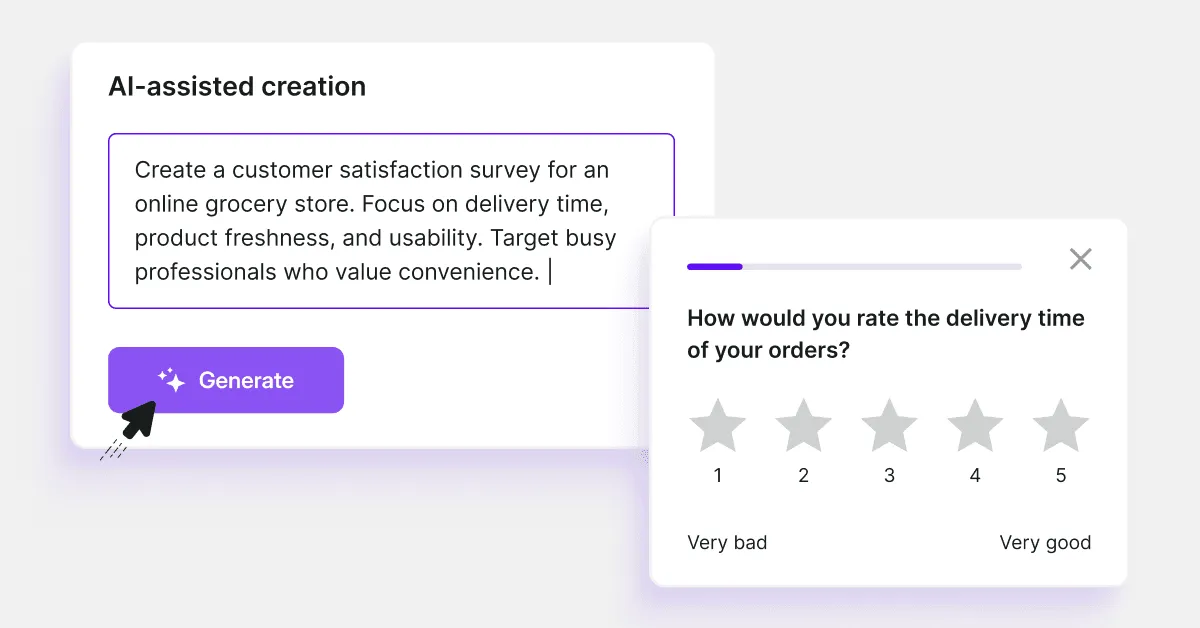
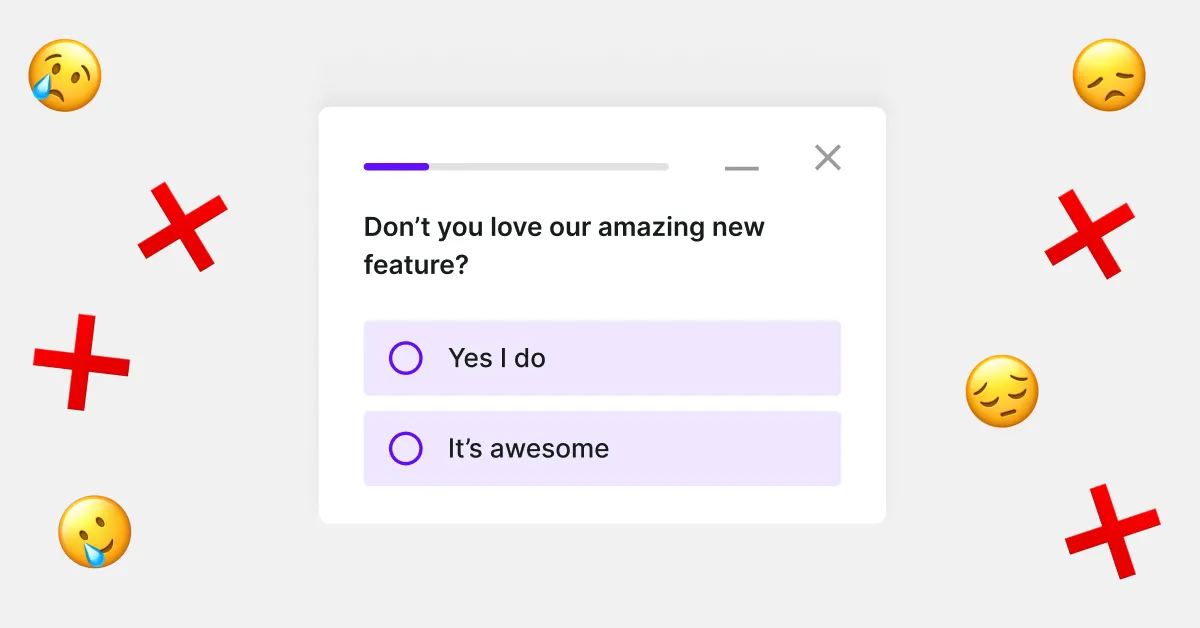
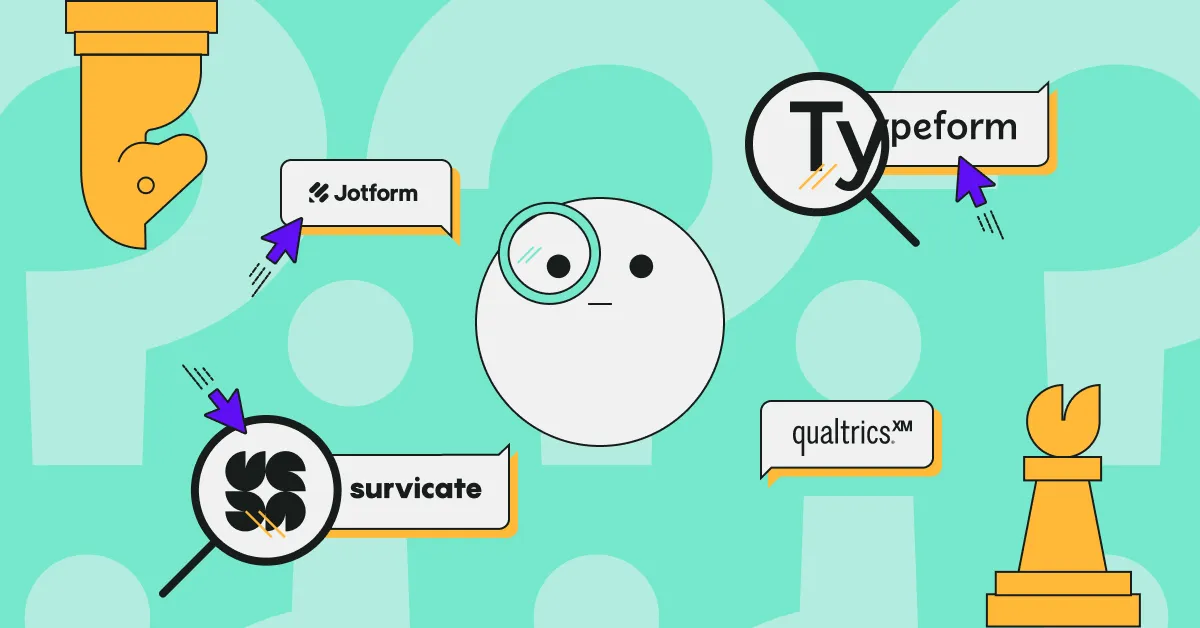
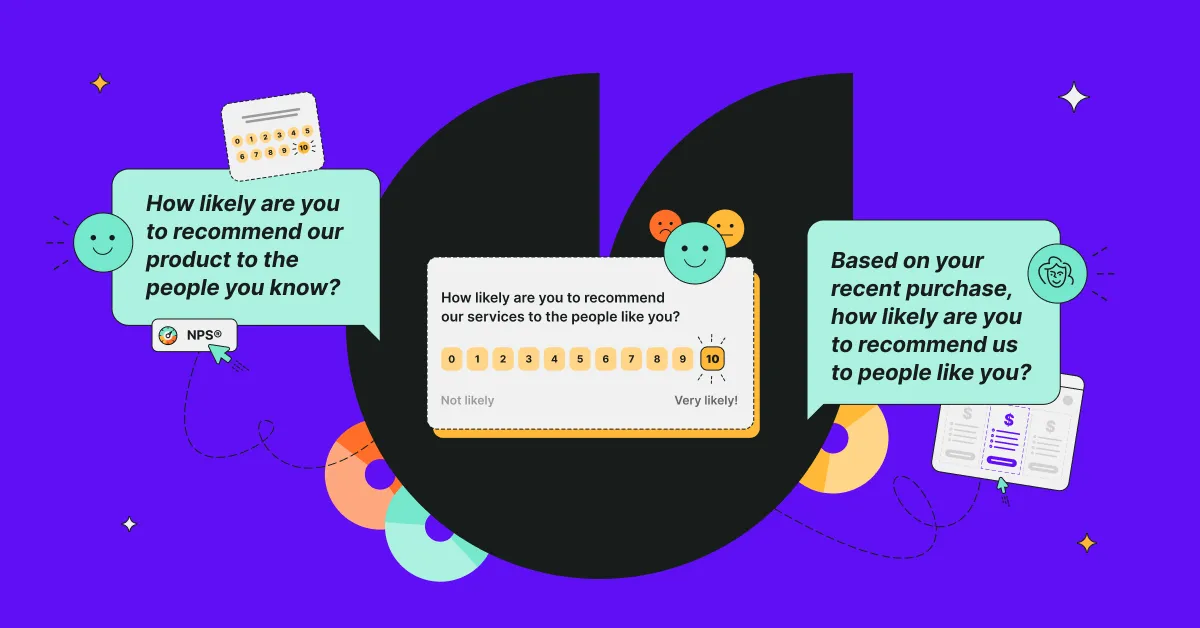
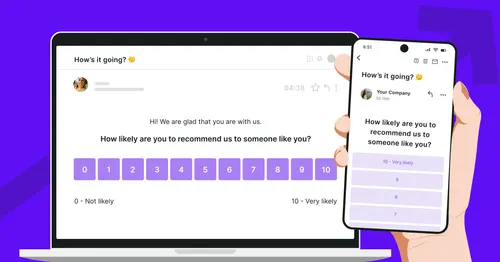
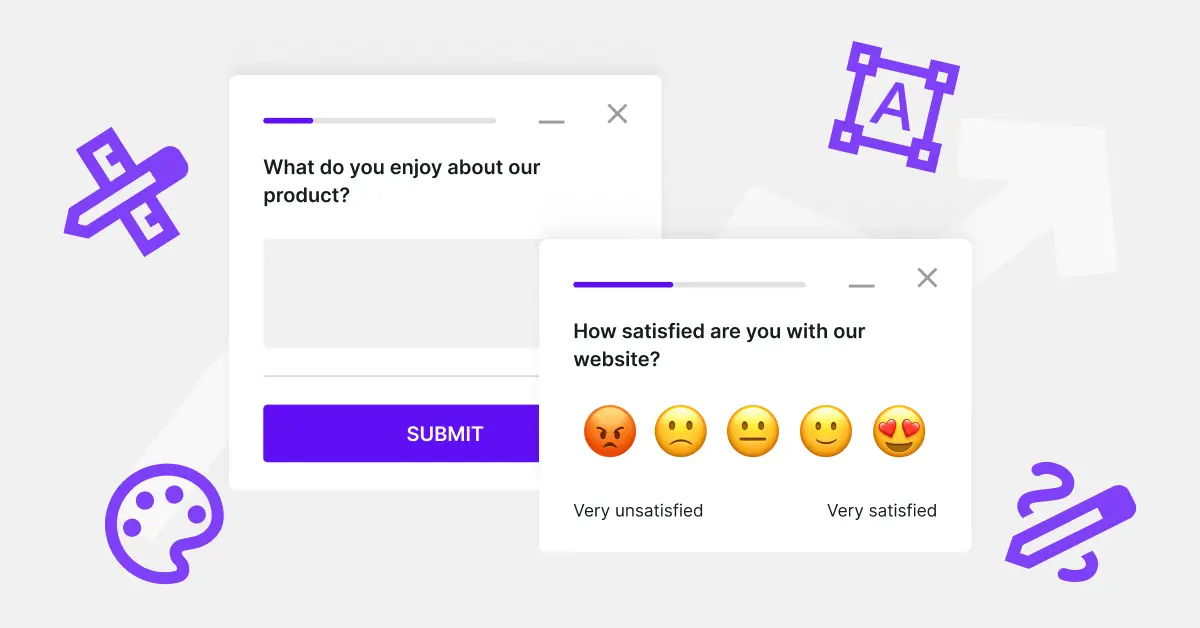
.svg)

.svg)


